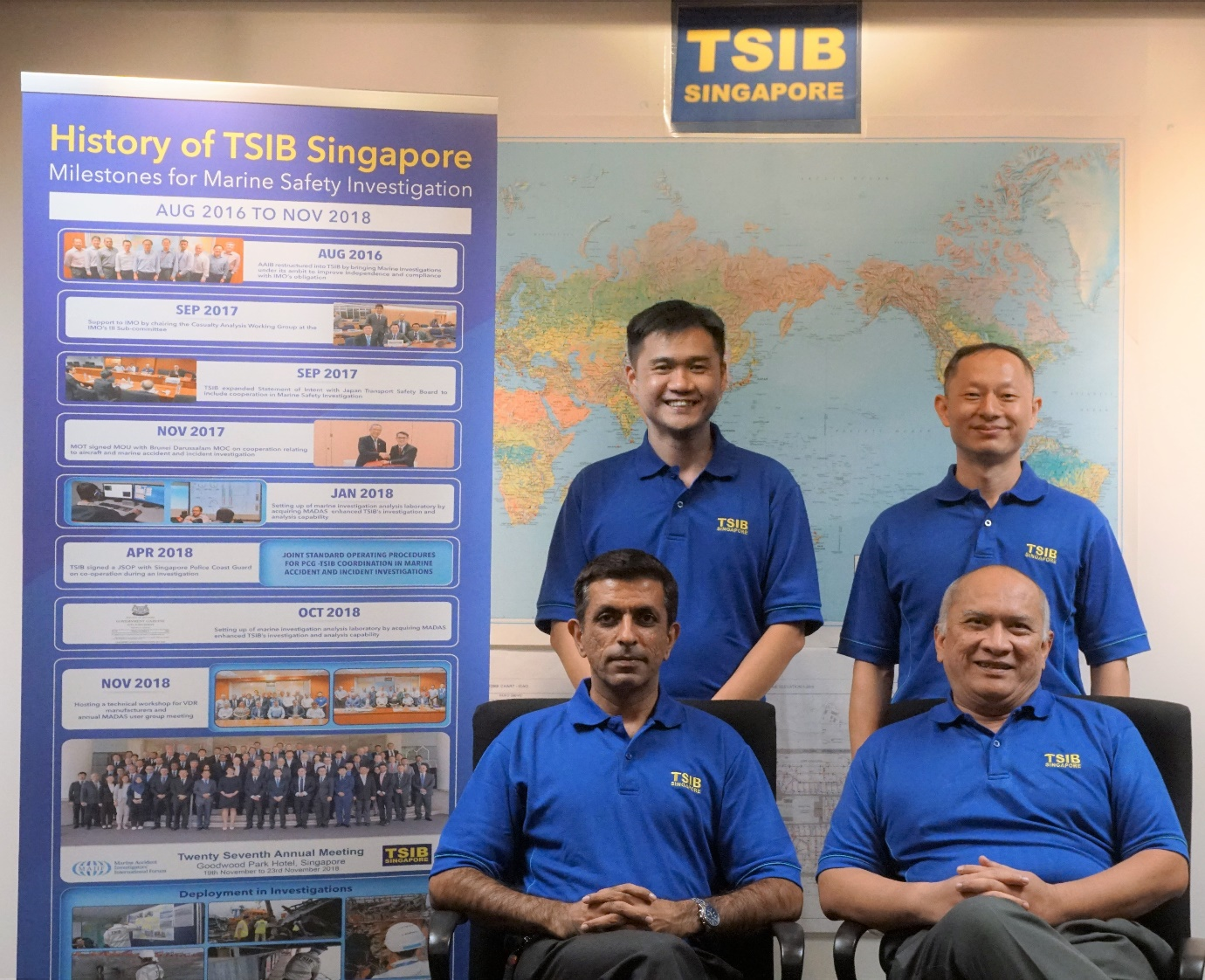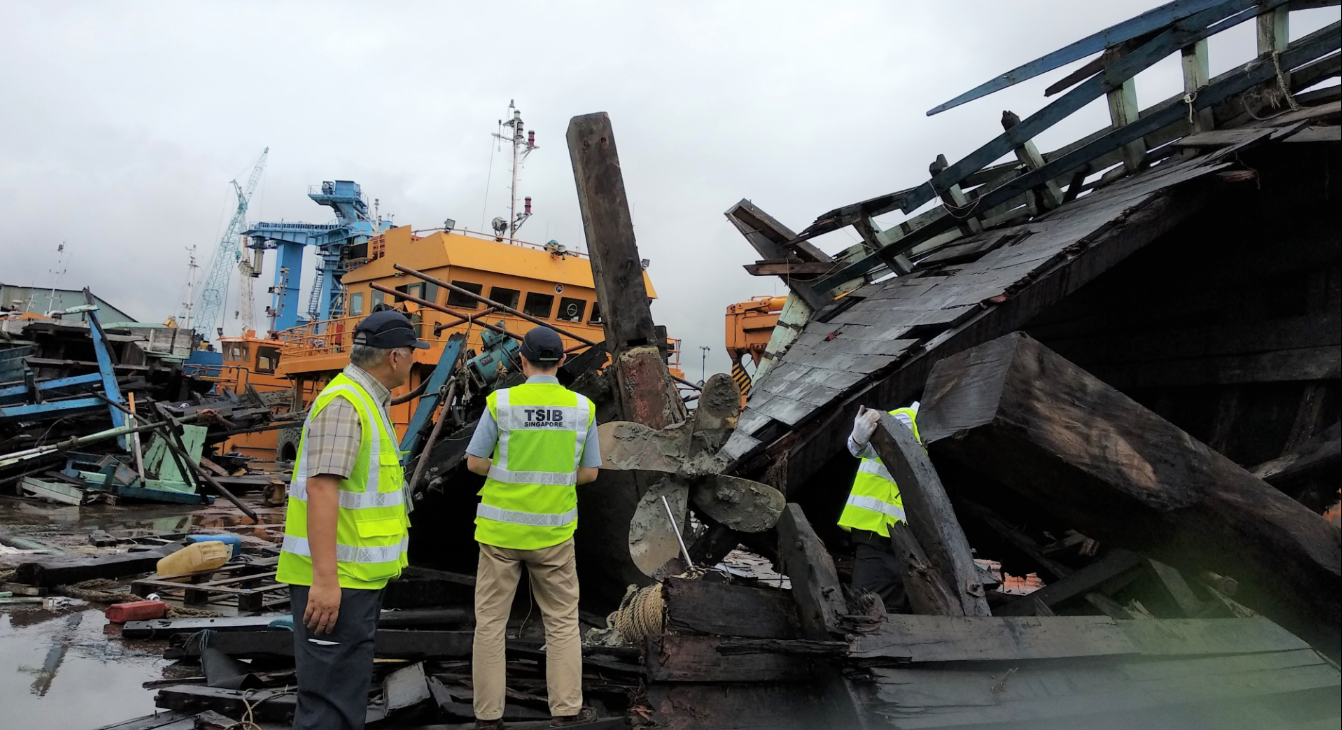
Source: TSIB, The team of marine safety investigators with TSIB: (front row) Capt Kunal Nakra, Capt Jamaludin Jaffar;
(back row) Yeo Lee Chuan, Capt Xiao Shouhai
Even as automation and more electronic equipment are being developed to improve safety at sea, accidents do happen and a significant number are attributed to the human factor which underscores the need for a strong safety culture.
"It is important for seafarers to appreciate the importance of maritime safety and know how to enhance maritime safety. To this end, important information on maritime safety, including lessons from past incidents, should be shared with seafarers on a regular basis, so that they can take steps to avoid the same incidents," Capt Kunal Nakra, Transport Safety Investigation Bureau's (TSIB) Deputy Director (Marine), says.
TSIB plays a key role in this function as it collaborates closely with stakeholders to determine the root cause of marine accidents and reviews safety actions taken by stakeholders. And when necessary, the bureau issues safety recommendations to prevent a recurrence.

Source: TSIB, TSIB's investigators gathering evidence
The TSIB's marine safety investigations do not seek to apportion blame or liability as the sole objective of these investigations is the prevention of marine accidents and incidents. And because the aim is not to ascribe blame, those involved in an incident are free to share information without fear of being penalised.
Capt Nakra added that companies should also build a safety culture, so that maritime safety is ingrained in the systems and processes on board vessels.
For that purpose, TSIB regularly engages the maritime industry at various forums and seminars to increase awareness of maritime safety. The body also conducts training in marine safety investigation for its counterparts.
TSIB investigates aviation and marine occurrences.
The marine branch investigates very serious marine casualties involving Singapore-registered ships, as well as those involving non-Singapore registered ships within the city-state's territorial waters. It carries out investigations in accordance with the Code of International Standards and Recommended Practices for a Safety Investigation into a Marine Casualty or Incident of the International Maritime Organization (IMO).
TSIB's maritime safety mission extends beyond Singapore, and it also supports IMO efforts in this field. For example, Capt Nakra chairs the working group at the IMO on Casualty Analysis, which amongst other things, reviews accident investigation reports and its related processes and provide recommendations for further improvement.
To read more on TSIB, visit
www.mot.gov.sg/about-mot/transport-safety-investigation-bureau.
Marine Safety Investigation Reports can be found at
https://www.mot.gov.sg/about-mot/transport-safety-investigation-bureau/msib/investigation-report/.

